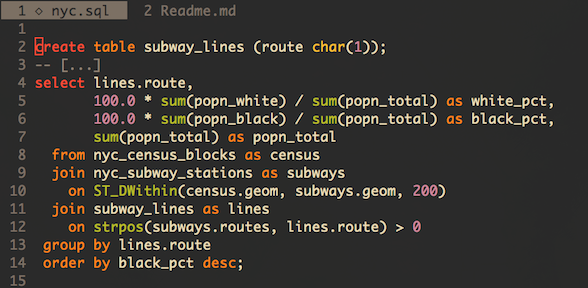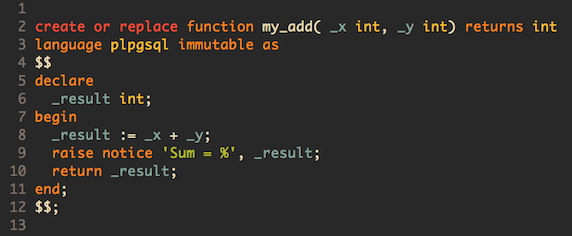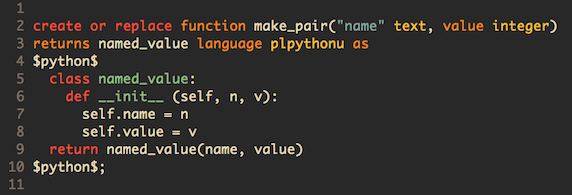This plugin provides syntax highlighting and auto-completion support for PostgreSQL version 9.6 or above and for some of its extensions, including:
Besides, syntax highlighting for any language may be activated inside functions (see below).
If your Vim supports packages (echo has('packages') prints 1), I strongly
recommend that you use them. Just clone this repo inside pack/*/start, e.g.,
mkdir -p ~/.vim/pack/plugins/start
git clone https://github.com/lifepillar/pgsql.vim.git ~/.vim/pack/plugins/start/pgsqlOtherwise, if you don't have a preferred installation method, I recommend installing Pathogen, and then simply copy and paste:
cd ~/.vim/bundle
git clone https://github.com/lifepillar/pgsql.vim.gitFor thorough documentation, see :h pgsql.txt.
Files with a .pgsql suffix are highlighted out of the box. If you want to
highlight .sql files using this plugin by default, add this to your .vimrc
(see :h ft_sql.txt):
let g:sql_type_default = 'pgsql'Alternatively, after loading a .sql file use this command:
:SQLSetType pgsql.vimTo set the file type in new buffers use:
:let b:sql_type_override='pgsql' | set ft=sqlCode between $pgsql$ or $$ pairs is treated as PL/pgSQL and highlighted
accordingly:
You may set g:pgsql_pl to a list of file types to be used in user-defined
functions. For example, after setting:
let g:pgsql_pl = ['python']code between $python$ pairs will be highlighted as Python:
The syntax file is generated automatically. If you want to hack it, edit
src/pgsql.sql, then execute:
cd ./src
DBUSER=<user> DBHOST=<hostname> make installWhen DBUSER is omitted, postgres is assumed. When DBHOST is omitted,
127.0.0.1 is assumed.
The specified user must be a superuser, because the script will create
a database called vim_pgsql_syntax and a few extensions that require admin
privileges. It will then proceed to extract all the keywords. Feel free to
browse the source scripts to see exactly what they do.
The above command will update syntax/pgsql.vim. Use make distclean to drop
the database (or drop it manually).
The script has been tested in macOS, but it should work on any *nix system.
This plugin was originally based on code from space::tekk (and completely rewritten).


